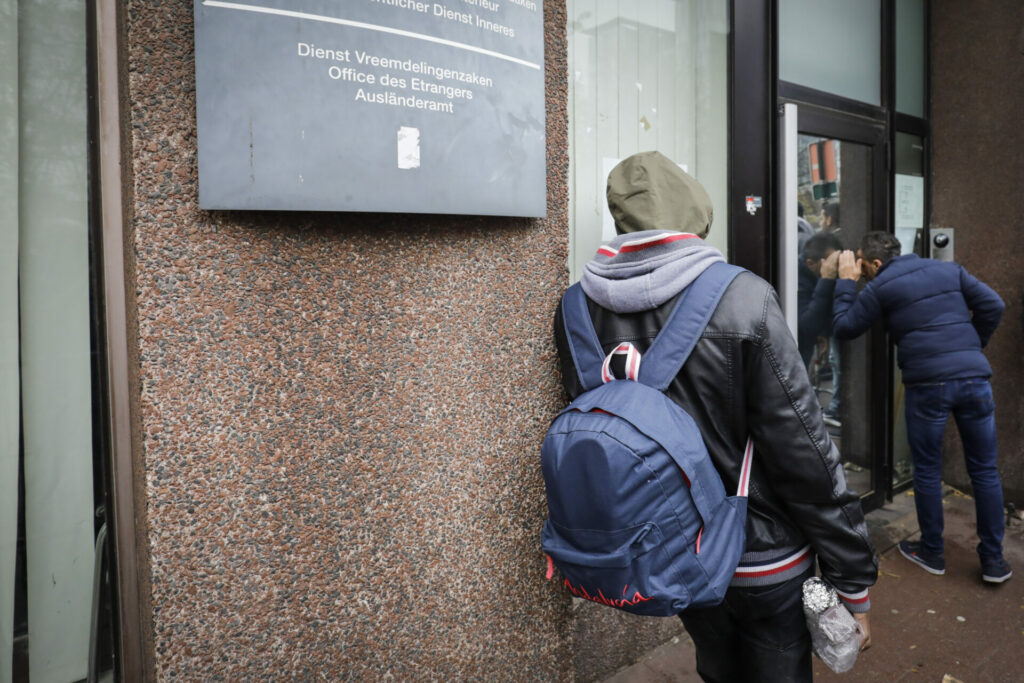The backlog of applications for international protection processed by the Office of the Commissioner General for Refugees and Stateless People (CGVS) has reached its highest level since the migration crisis in 2015.
The CGVS is Belgium's agency in charge of offering protection to foreigners who, upon return to their country of origin, fear persecution, conflict or violence.
Last week, it published its asylum figures for February 2023, which showed that at the end of last month, the total workload — the number of files on which CGVS has not yet made a decision — was 18,390 dossiers, concerning a total of 21,618 people.
"Given the current inflow, 4,800 dossiers can be considered a 'normal' workload," the CGVS wrote on its website, meaning this constitutes a 'real' backlog of 13,590 files. Afghanistan, Palestine and Syria are currently the top countries of origin of applicants for international protection.
According to La Libre, the situation is at its worst since the 2015 migration crisis, fuelled mainly by the war in Syria, but also due to ongoing conflicts in Iraq, Afghanistan, Somalia and Darfur.
Between September 2015 and April 2016, the number of applications for international protection in Belgium increased, until it peaked in April 2016, when the previous record for backlogs at the CGVS was set. The total workload then stood at 18,375 files, after which this figure gradually decreased.
More staff, more work
Now, the number of people who submitted requests for international protection to the Immigration Department (DVZ), which determines whether the application for international protection can be submitted in Belgium, has once again risen.
At the end of last year, a total of 36,871 people made such an application, a 42% increase from the previous year.
However, CGVS' spokesperson Damien Dermaux also highlighted that the rise is the result of an increase in the number of DVZ staff, meaning more files are handled and then passed on more quickly to the CGVS.
"In 2022, the DVZ forwarded an average of 2,127 files per month to the CGVS. Since the beginning of 2023, it has been more than 3,400 per month," Dermaux said.
Related News
- Human tragedies: More than 225,000 illegal pushbacks at Europe's external borders
- Asylum seekers occupying Crisis Centre demand national crisis plan
In the last weeks of 2022, CGVS' teams were reinforced by 130 people to manage the workload as it was determined to give applicants their decisions as soon as possible, yet the number of files to be processed remains high, as new workers "cannot be engaged immediately because they have to undergo training first."
Belgium, overall, has been slow to respond to the rising number of asylum seekers arriving in the country. People applying for international protection are legally entitled to shelter and guidance during their application. Belgium has failed to provide this to thousands of people, resulting in them sleeping rough instead.
Belgium's reception crisis explained
For more than a year now, hundreds of asylum seekers have been sleeping rough as a result of Belgium's failure to provide them with the shelter they are legally entitled to.
Fedasil, Belgium's Federal Asylum agency, operates several reception centres across Belgium (of which Petit Château in Brussels has become the most notorious), where people who have been granted asylum in the country should receive a bed, bath and food (or a sheltered place).
Once the rush of asylum seekers coming to the country temporarily slowed down following the migration crisis, the government reduced the number of sheltered places, closing down Fedasil centres.
Since October last year, this figure is once again increased slowly, and the government is not responding to the rise in demand for sheltered places.
Instead, it created a waiting list which prioritised minors and families with children, leaving single men to sleep on the streets, and resulting in Fedasil being convicted more than 4,500 times for failing to provide shelter.

